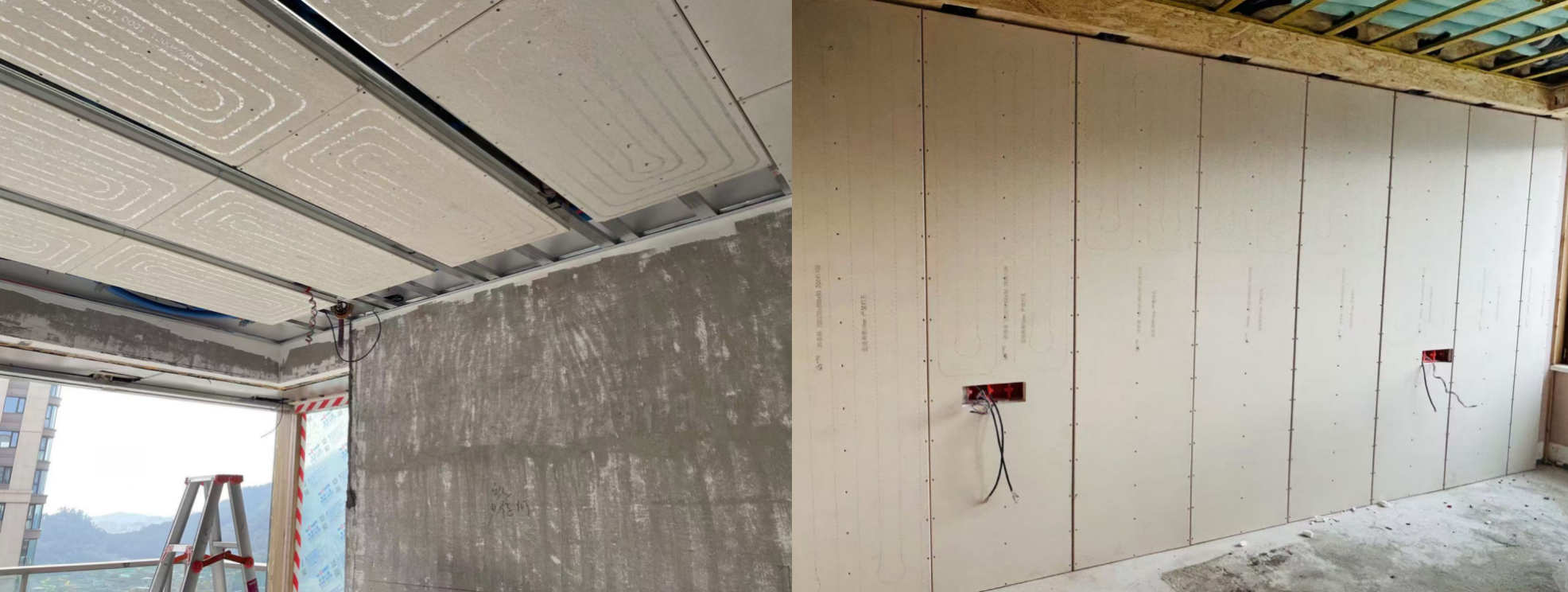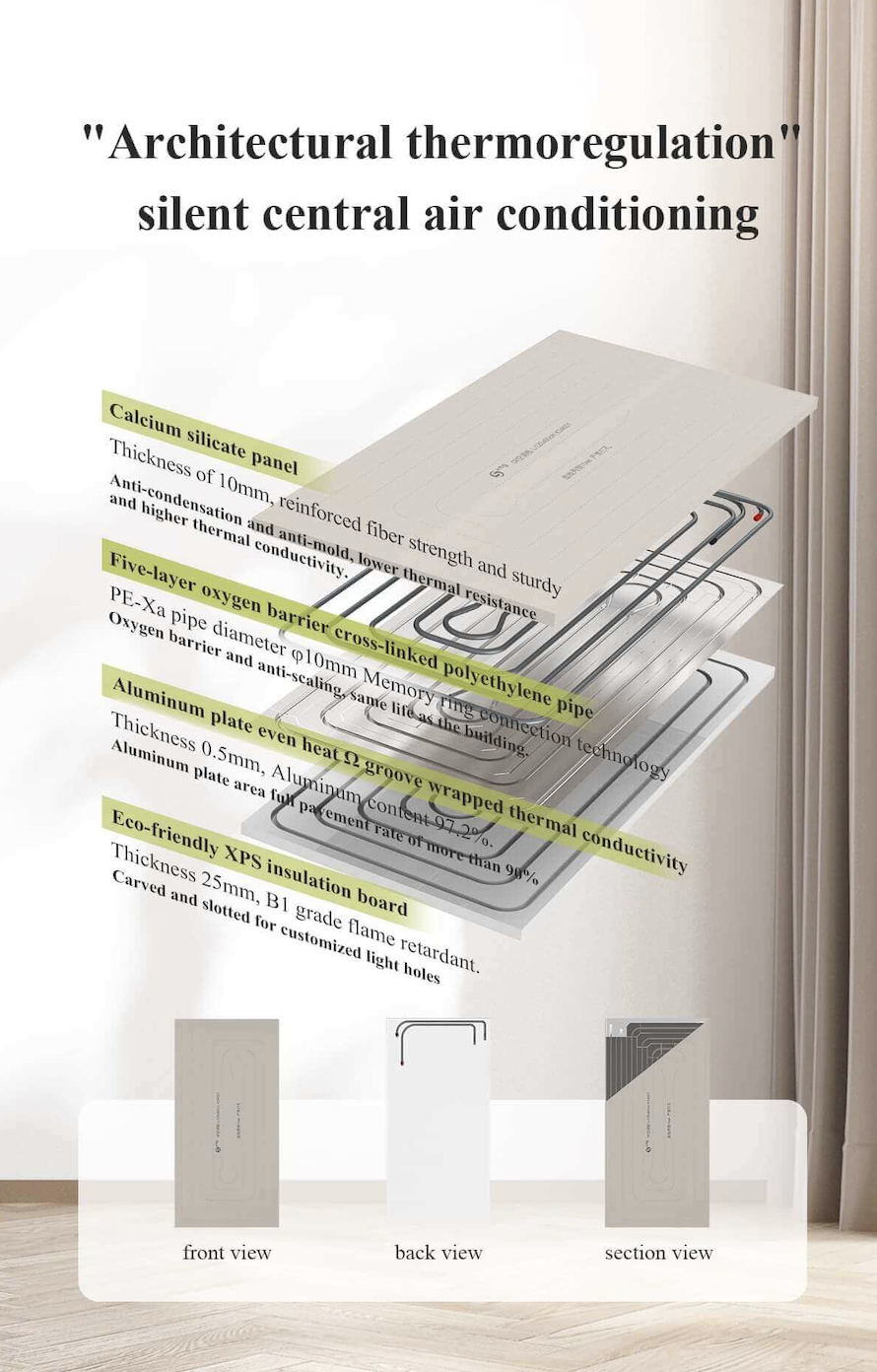Does a water-cooled air conditioner work
views: 3280 time: 2024-11-16
views: 3280 time: 2024-11-16
The water-cooled air conditioning system is an advanced and energy-efficient solution that uses water as the primary medium to transfer heat instead of traditional refrigerants or air. These systems are particularly effective in radiant cooling and heating setups, like the Menred water-cooled silent air conditioning panel.
These panels operate by circulating cooled (or heated) water through an embedded network of pipes or tubes. The water absorbs heat from the room in cooling mode or radiates heat into the room in heating mode.These are designed to integrate seamlessly into a room’s structure, often as part of the ceiling or wall.
Definitely yes, water cooled air conditioners work fine .The system is designed to provide both cooling during summer and heating during winter, offering a year-round indoor comfort solution.Temperature is typically regulated by the water’s temperature, ensuring precise control.
1. Water-Cooled Air Conditioning Panel:
Installed on ceilings or walls for radiant cooling/heating.
Incorporates advanced materials:
This combination of materials and design highlights the advanced engineering behind water-cooled silent air conditioning panels. By integrating features like calcium silicate for durability and mold resistance, PE-Xa pipes for longevity, and aluminum plates for even heat distribution, these panels provide both efficient performance and a long lifespan. The use of ECO-friendly XPS insulation further ensures energy efficiency and environmental sustainability, making these panels an excellent choice for modern indoor climate control.
2. Chilled Water Source:
- Typically a chiller or a heat pump generates chilled water for cooling. These sources can also provide heated water for winter applications.
- Water temperatures are maintained at:
3. Circulation System:
4. Control Systems:
5. Energy Recovery Ventilation (ERV):
Cooling Mode:
Heating Mode:
1. Silent Operation:
Because the system uses radiant cooling/heating, it doesn’t rely on fans or blowers, which makes it extremely quiet compared to traditional air conditioning systems. This is ideal for spaces like bedrooms, offices, or libraries where noise needs to be minimized.
2. Energy Efficiency:
3. Comfortable Indoor Climate:
4. Condensation Prevention:
5. Eco-Friendly:
Residential Homes: Bedrooms, living rooms, and home offices.
Commercial Buildings: Offices, hotels, conference rooms, and retail spaces.
Public Spaces: Hospitals, schools, and libraries.